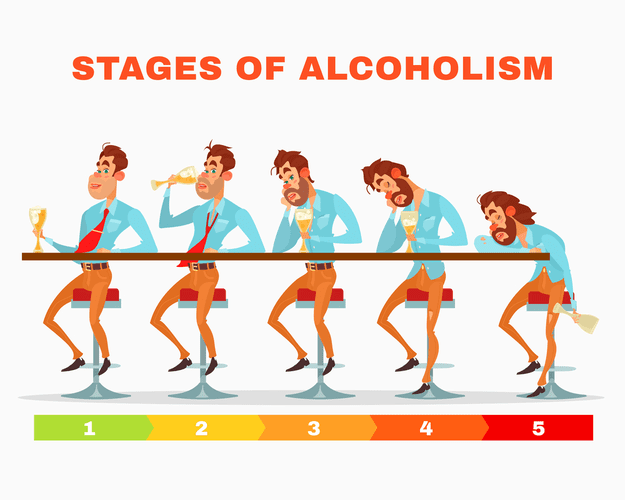By Michelle PugleMichelle Pugle writes health articles for award-winning websites, as seen in Healthline, Verywell, Everyday Health, and Psych Central. She has a Master’s degree, undergraduate degrees in English and Sociology, a diploma in Holistic Herbal Therapy, and is trained in mental health first aid, anti-violence work, and peer support work. Relapse (using substances again after stopping) can and does happen, with 85% of people experiencing relapse at least once and half of them doing so within the first two weeks of sobriety. Some studies find that this structure, along with a start date for sobriety and milestones, is important to some people in recovery. Furthermore, sobriety http://citus.ru/tags/%C1%E5%F0%E5%EC%E5%ED%ED%EE%F1%F2%FC/ contributes to Personal and Professional Development. With a clear mind and increased energy, pursuing educational opportunities, career advancements, or personal hobbies become more attainable.
- In your pursuit of sobriety, don’t hesitate to seek professional help and use available resources to bolster your journey.
- Finding the right fit in a treatment program to overcome substance use disorder is vital to your recovery.
- Yes, individuals using Medication-Assisted Treatment (MAT) can be considered sober.
- Not only can avoiding alcohol or drug use improve cardiovascular, liver, and gastrointestinal health and dietary habits, but it can also help a person overcome mental health challenges.
- Without substances, many people in recovery report clearer thoughts and more vivid experiences of the world around them.
- Reach us by calling to learn more about how you can start your recovery today.
Can Someone Be Considered Sober If They Use Medication-Assisted Treatment (MAT)?
- Warren is a Licensed Master Social Worker, who specializes in substance abuse and mental health treatment.
- It involves managing your emotions and reactions in a healthy way without resorting to substance use.
- While vanity may not be the best reason to get sober, the resultingchange in your appearanceis a nice bonus.
- Many people use the terms “sobriety” and “abstinence” interchangeably, but they are not the same.
Working with professionals is essential to overcoming substance use disorder (SUD). Engagement with evidence-based addiction treatment and exposure to many therapeutic opportunities and approaches can help you create an educated approach to your developing sober lives. If these emotions become excessive, they can hold you back from recovery. If you are trying to maintain a sober lifestyle, those feelings can become toxic and contribute to relapse if you don’t deal with them properly.

Improved Physical Health

Setbacks don’t erase progress, though, and they don’t mean you’ve “failed” to stay sober. Substance abuse takes a toll on the body, but sobriety can reverse many of these http://malchish.org/index.php?option=com_content&task=view&id=16&Itemid=35 effects. You’ll notice an increase in energy levels, better sleep patterns, and an overall improvement in physical appearance. Studies show that individuals in recovery experience a significant improvement in liver function, heart health, and a decrease in the risk of certain cancers.

What Are the Three Pillars of Sobriety?
Having a plan in place and a support system can make it easier to stay on track and reach goals. The American Society of Addiction Medicine (ASAM) states that remission from addiction where an individual is not at a greater risk of developing an addiction than a normal person takes 5 years to achieve. http://www.thecoalminetour.com/WatchHistory/watches-for-the-first-time There are many more interventions that may be used to help you recover from substance misuse. Being sober means you’re always in the clear to help out with a late-night lift.
- Below are some of the many benefits of sobriety that are worth considering when choosing whether to work toward sobriety and maintain a life of abstinence.
- Recognizing addiction as a medical condition can remove the stigma and open doors to evidence-based treatments that are proven to be effective in helping addicts achieve long-term sobriety.
- This can boost your self-esteem and confidence, which are essential for a fulfilling life.
- Cognitive Behavioral Therapy (CBT), for instance, helps you identify and change negative thought patterns, enabling you to discover new ways to cope with stress and anxiety without resorting to substances.
- Being sober means you’re always in the clear to help out with a late-night lift.
